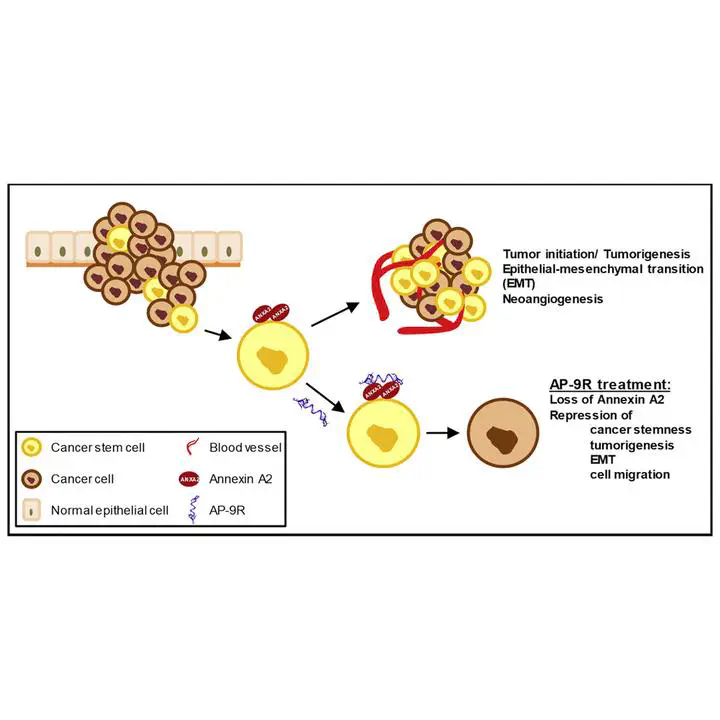A novel DNA aptamer targeting lung cancer stem cells exerts a therapeutic effect by binding and neutralizing Annexin A2

Abstract
Cancer remains one of the leading causes of death worldwide. Cancer stem cells (CSCs) are the underlying reason for tumor recurrence, progression, and therapeutic resistance. Aptamers are synthetic single-stranded oligonucleotides that can specifically bind to various molecular targets. Here, we aim to develop an effective aptamer-based biomarker and therapeutic tool that targets CSCs for cancer therapy. We perform whole-cell-based systematic evolution of ligands by exponential enrichment (cell-SELEX) to screen DNA aptamers that specifically bound to lung CSCs, modeled by E-cadherin-silenced A549 cells. We develop a CSC-specific aptamer (AP-9R) specifically recognizing lung CSCs with high affinity and identify Annexin A2, a Ca2+-dependent membrane-binding protein, as its target. Annexin A2 expression was upregulated in lung CSCs and involved in cancer stemness. The expression of Annexin A2 was associated with signatures of stemness and metastasis, as well as poor clinical outcomes, in lung cancer in silico. Moreover, AP-9R decreased Annexin A2 expression and suppressed CSC properties in CSCs in vitro and in vivo. The present findings suggest that Annexin A2 is a CSC marker and regulator, and the CSC-specific aptamer AP-9R has potential theranostic applications for lung cancer.